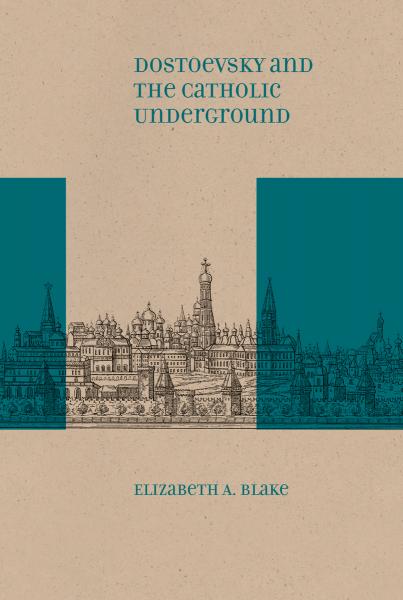Elizabeth Blake

Education: BA in French/Russian Studies, College of William and Mary; MA and PhD in Slavic Literatures,The Ohio State University
Elizabeth Blake is an Assistant Professor of Russian in the Department of Modern and Classical Languages at Saint Louis University.
When did you first develop an interest in Slavic, East European and Eurasian Studies?
I was born and raised inside the Beltway, so an early interest in politics encouraged me to participate actively in Model UNs in high school and motivated me to apply to a summer program at Georgetown University that focused on East-West relations, including SDI. Senior year I took night classes in Russian (because I was taking French and Latin during the day) and then majored in Russian Studies and French at William and Mary with plans to work on Capitol Hill. My professional experience during college summers at the Atlantic Council, where my sister was an assistant to Peter Swiers (Harriman Chair for East-West Studies), contributed to my fascination with Russia, so I decided to study with CIEE in St. Petersburg and upon my return moved to New York where I worked for an import-export firm engaged in trade with Russia.
How have your interests changed since then?
When applying to graduate schools soon thereafter, I already knew that I wanted to focus on Dostoevsky studies, but I also wanted exposure to a wide variety of disciplines, so I chose Ohio State, where I was able to work with manuscripts at the Hilandar Research Library, to study Russian Orthodox intellectual history, and to pursue an interest in Polish Studies in addition to conducting research in St. Petersburg and Krakow to write my dissertation on Dostoevsky. These experiences prepared me well to teach Russian Orthodox theology, nineteenth-century literature, and Russian at Saint Louis University.
What is your current research project?
 Northwestern University Press just sent me a copy of my first monograph, Dostoevsky and the Catholic Underground (April 2014), which, in addition to presenting research on Dostoevsky’s encounters with Catholic revolutionaries in Europe and Siberia, examines the ways in which the author engages Catholic writers and admires various Catholic figures even as he continues to warn Russia about the dangers posed by the pope’s “black army” of Jesuits. My current monograph project continues my research on the inter-revolutionary generation of Poles in Siberian exile (1835-62) by working with research on memory and narratives of trauma in an attempt to account for the way in which the generation, preservation, transmission, and distribution of these remembrances affected their subsequent reception history as well as their use and abuse by relatives, fellow former exiles, journalists, and scholars of Polish history. Another current long-term project, Ecumenical Dialogue in the Reform Era, focuses on the East-West dialogue fostered by Russian Orthodox theologians during the reign of Alexander II.
Northwestern University Press just sent me a copy of my first monograph, Dostoevsky and the Catholic Underground (April 2014), which, in addition to presenting research on Dostoevsky’s encounters with Catholic revolutionaries in Europe and Siberia, examines the ways in which the author engages Catholic writers and admires various Catholic figures even as he continues to warn Russia about the dangers posed by the pope’s “black army” of Jesuits. My current monograph project continues my research on the inter-revolutionary generation of Poles in Siberian exile (1835-62) by working with research on memory and narratives of trauma in an attempt to account for the way in which the generation, preservation, transmission, and distribution of these remembrances affected their subsequent reception history as well as their use and abuse by relatives, fellow former exiles, journalists, and scholars of Polish history. Another current long-term project, Ecumenical Dialogue in the Reform Era, focuses on the East-West dialogue fostered by Russian Orthodox theologians during the reign of Alexander II.
What do you value about your ASEEES membership?
While I greatly appreciate ASEEES-sponsored opportunities for interdisciplinary collaboration with diverse colleagues, I believe that ASEEES’s role as advocate for Title VIII programs most directly affects my research, which has benefited from U.S. Department of Education and Department of State grants.
Besides your professional work, what other interests and/or hobbies do you enjoy?
Aside from indulging an obsession with nineteenth-century novels and keeping up with language maintenance, I swim, play soccer, and make a mean chocolate cake.
